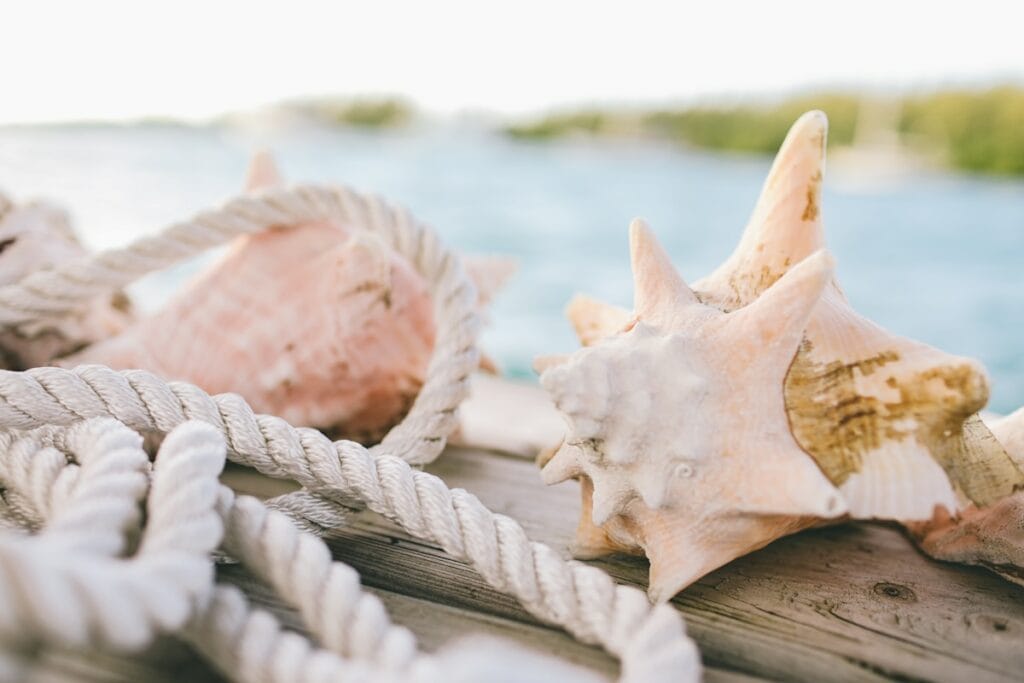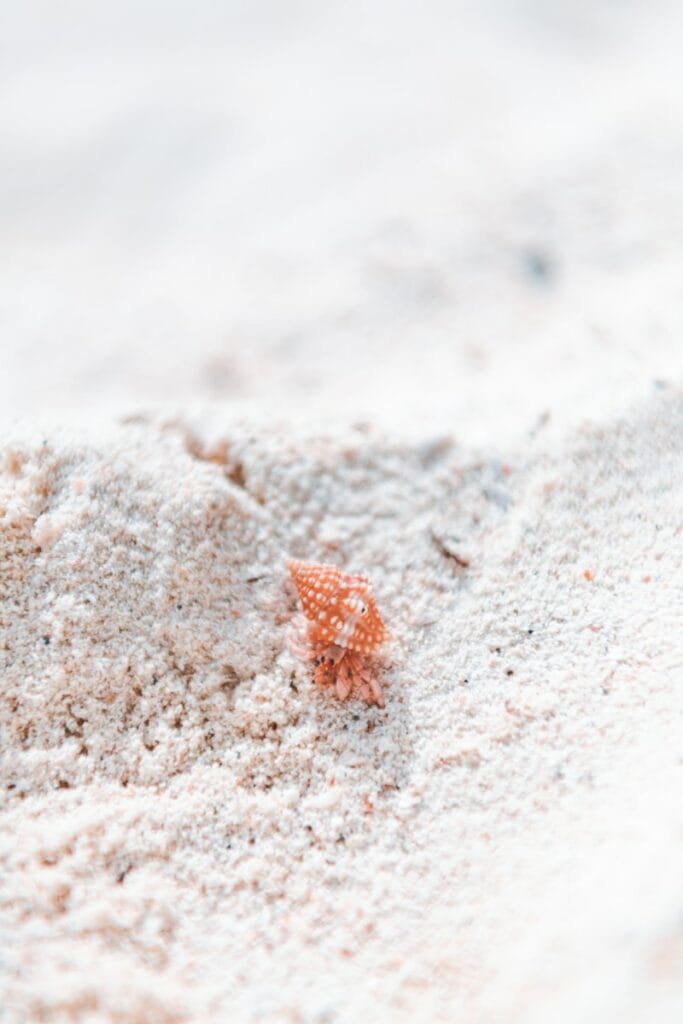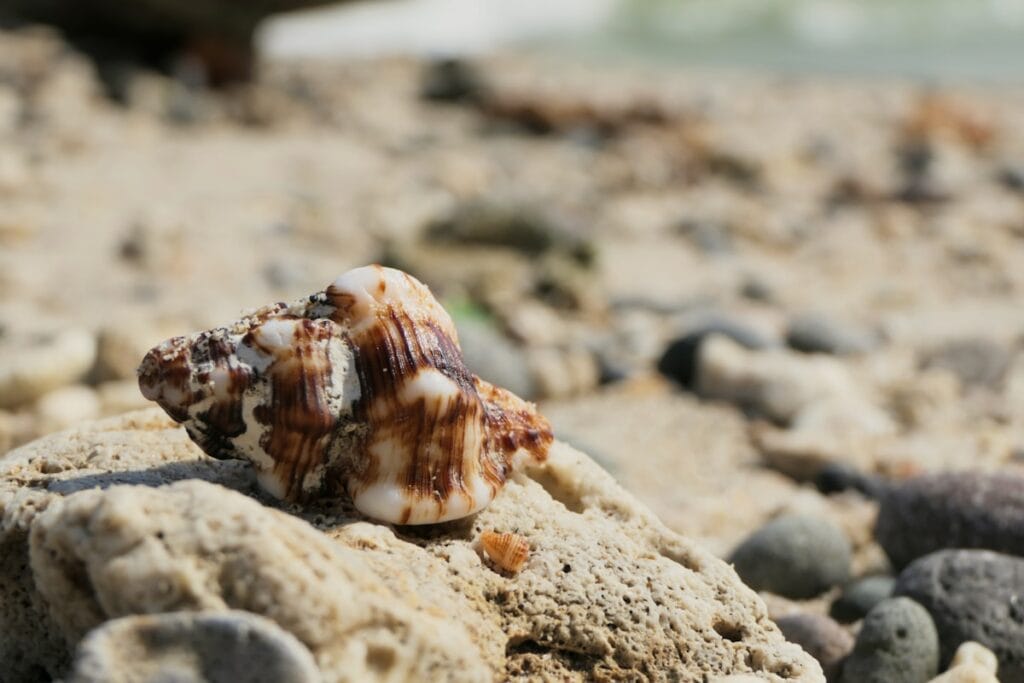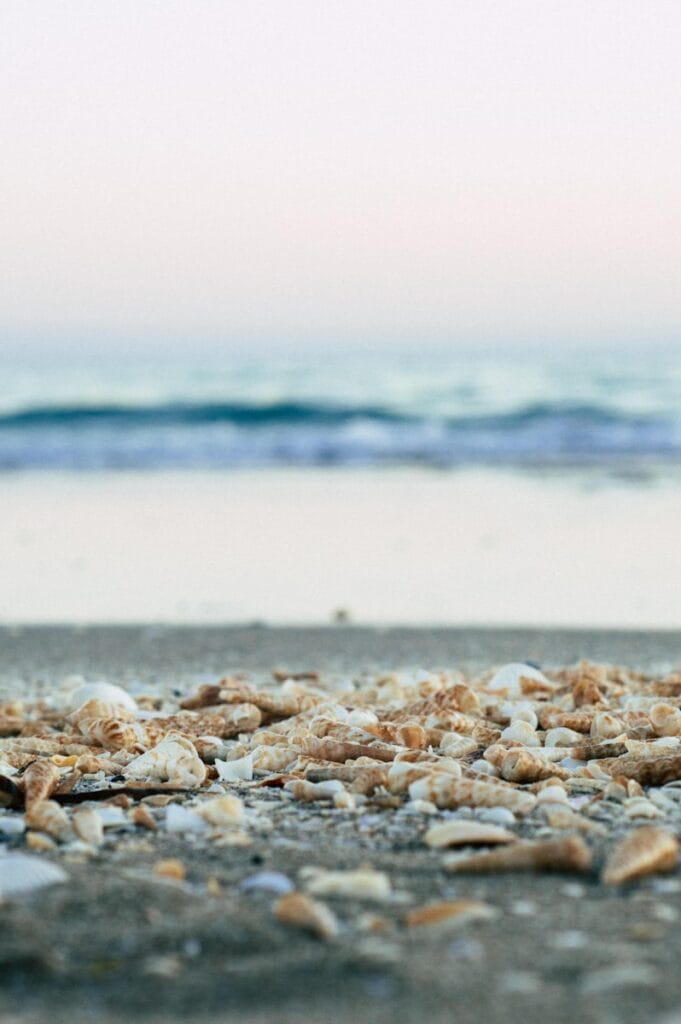Mindful Travel- Leave Seashells in the Marine Ecosystem to Prevent Erosion and Protect Biodiversity
Mindful Travel means understanding the culture and environment you’re stepping into and treating both with reverence. When it comes to collecting seashells, this means that we have to rethink your travels, leave Seashells in the Marine Ecosystem to prevent erosion and protect Biodiversity.

A walk along the shoreline, sun warming your shoulders, waves lapping at your feet and then you spot it: a perfect seashell, gleaming in the sand. It feels like a tiny gift from the ocean and you pocket it with a smile. But what if that simple act, done by millions each year was quietly hurting the ecosystem?
Seashell collecting, a fun beach pastime for generations, may seem harmless, even romantic. Yet recent environmental studies and ecological observations are telling us a different story: when we take shells from their natural habitats, we may be removing far more than pretty souvenirs. We’re disrupting delicate marine ecosystems, interfering with coastal erosion protection and threatening the survival of some species that depend on them.
Mindful Travel: Collecting Seashells Can Harm the Ocean You Love
As women, we’re often the stewards of memory, curating photo albums, collecting keepsakes, passing stories down through generations. So it’s natural, while walking along a sun-drenched beach, to want to pocket a beautiful shell as a tangible reminder of the moment. But in this era of mindful living and conscious travel, even this simple act deserves a second look.
Mindful travel teaches us to tread lightly and to leave a place better, or at least no worse—than we found it. When it comes to collecting seashells, this means rethinking a practice that, while seemingly harmless, carries real environmental consequences.
Seashells Are Not Souvenirs

To the untrained eye, seashells are just empty homes abandoned by their former occupants. In reality, they are vital to biodiversity. Once empty, shells become homes for other living microorganisms like hermit crabs, algae and small fish. They also help stabilize beaches by preventing erosion and nourishing the sand. When humans remove too many shells, entire microhabitats are stripped away disrupting a fragile balance that took centuries to form. In one striking study conducted in Spain’s Mediterranean coast, researchers found that popular tourist beaches had up to 60% fewer shells than nearby, less-frequented areas.
This seashell shortage wasn’t just cosmetic. Scientists linked it to a drop in biodiversity, as fewer shells meant fewer shelter options for smaller creatures and increased vulnerability to predators.
Seashells Shortage- Hermit Crabs Crisis

Hermit crabs don’t grow their own shells, they borrow them. And as they grow, they need to “upgrade” to larger ones. If too many shells are collected by humans, especially larger ones, it creates a dangerous housing shortage for these animals.
In fact, conservationists have observed crabs battling each other over limited shells, or attempting to squeeze into ill-fitting plastic debris and bottle caps instead. It’s a heartbreaking and entirely avoidable side effect of shell collecting.
Prevent Erosion and Biodiversity Impact

There’s also a vast difference between someone picking up a shell or two on a family vacation and the booming global trade in seashells. Shells are harvested by the ton for souvenirs, jewelry, home décor, and craft supplies. In some regions, this has become a multi-million dollar industry with devastating consequences. Over-harvesting has already caused local extinctions and put pressure on species that are part of the shell ecosystem. But here’s the hard truth: even small-scale personal collecting adds up when millions of beachgoers participate. It becomes death by a thousand cuts—tiny, well-meaning acts that accumulate into lasting environmental damage.
If You Love Seashells, You Leave Them Where They Belongs
There’s a global seashell trade, an entire industry built around gathering, bleaching and selling shells for souvenirs, jewelry and crafts. Though the damage is most visible in high-volume collection areas, even the small act of taking one or two seashells per visitor adds up when millions pass through each year.
Mindful travel invites us to redefine what we take from our journeys. It’s not about denying ourselves memories but enriching them in ways that honour the places we visit. Consider these alternatives:
- Take Only Photos, Leave Only Footprints– Before picking anything up, ask: Does this belong to the beach more than it belongs to me? Seashells, driftwood, and stones are part of the coastal ecosystem. Snap a photo instead.
- Choose Reef-Safe Sunscreen– Conventional sunscreen can harm marine life and coral reefs. Look for mineral-based products free from oxybenzone and octinoxate.
- Skip the Shell Souvenirs– Avoid buying items made from real seashells, starfish, or coral—even if they’re labeled “ethically sourced.” Opt for local crafts made from sustainable materials instead.
- Do a 5-Minute Beach Clean-Up– Carry a reusable bag and spend a few minutes picking up litter or plastic bits. It’s a small act that makes a big difference—and locals will appreciate your care.
- Stay Curious and Respectful– Learn about local wildlife, tides, and marine traditions. Being a mindful guest means understanding the culture and environment you’re stepping into—and treating both with reverence.
- Beachcomber Journals- Encourage kids (and curious adults) to draw or write about their discoveries instead of taking them home.
- Support Conservation Groups: Contribute to or volunteer with organizations working to protect marine habitats.
There’s something quietly powerful about choosing not to take seashells when you go home. It’s an act of mindfulness, of humility. A small, intentional pause that says: This beautiful world is not mine to own, only to love it. And in that pause, we become part of something bigger, women who travel not just to see the world, but to protect its biodiversity.
Our oceans are under stress from pollution, climate change and over-tourism. Every thoughtful choice we make ripples outward. Choosing to leave seashells where they belong is a small act of respect that can make a massive difference.
When you are walking along the shore, consider the legacy of that little shell in your hand. Maybe it’s not just a keepsake, it is someone’s future home, a barrier against erosion, a beautiful part of a hidden ecosystem we barely understand. Leave it behind. Let it live its quiet purpose. Take the memory with you instead. That’s a souvenir that doesn’t cost the earth.
Do you want to share your story and inspire our readers ? Know that YOUR EXPERTISE is paving the way for a fairer, happier society.




